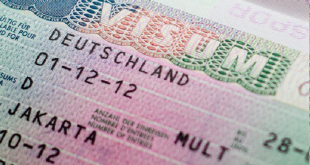It is important to discuss culture and traditions in Germany to help international students adjust to their new surroundings. Germany is not only the center of Europe in the geographical sense, but in the political and economic sense too.
Firstly, in terms of population, Germany has the second-largest population after Russia. Secondly, Germany has the largest economy in the continent and the fifth largest in the world. Finally, German culture influences many of its neighboring countries. In fact, you’d be surprised to find traces of German culture in Austria, Belgium, The Czech Republic, Denmark, France, Luxembourg, Holland, Switzerland, and even Poland.
Table of Contents
Culture facts and traditions in Germany
- Firstly, privacy and punctuality are of high importance in the German society. In addition to that, the German society also values saving, hard work and effort. Therefore, when dealing with German people, always be punctual and respect time schedules.
- Secondly, Germans are perfectionists in all aspects of life. They will never admit to their mistakes (not even jokingly!) and rarely exchange pleasantries. At first glance, you may think they’re unfriendly. However, they have a very strong sense of community.
- Thirdly, the official language in Germany is German, which is spoken by 95% of the population. However, there are many other languages spoken in the country. For instance, Serbian, Danish, Romanian, Turkish and Kurdish.
- Fourthly, the majority of Germans practice the Christian faith, with 3.7% practicing Islam.
- Fifthly, one of the foods associated with German culture is a type of sausage called Bratwurst. Additionally, German meals will most often include cabbage, beetroot, and turnip. You’ll probably notice that potatoes and pickled cabbage are German favorites.
- Sixth, culture and traditions in Germany are not defined by the arts but by innovation and intellectual and creative accomplishments.
- Seventh, most Germans prefer classical music like the symphonies of Bach, Mozart, and Beethoven. Germans also admire all forms of classical art. Among German landmarks is the Brandenburg Gate, which symbolizes the unity of Berlin.
- Finally, perfectionism is one of the main traditions in Germany that makes its way into the business realm as well. In fact, they hardly welcome surprises or gestures of humor. In the German society, every decision is carefully planned.
Working hours in Germany
- Most shops in Germany are open from Monday to Friday from 9 AM to 6 PM. However, on Saturdays, shops open from 9 a.m to 4 p.m. You’ll also notice that big shopping malls remain open from 8 a.m to midnight.
- Working hours will usually differ from one bank to another. However, most are open from Tuesday to Friday from 8 a.m to 4 p.m. Additionally, working hours end at 1 p.m on Wednesdays. Furthermore, Saturday and Sunday are off days every week.
- Regular post offices open from Monday to Friday from 7:30 am to 12 p.m and from 2 p.m to 6 p.m. However, working hours on Saturdays are from 7:30 a.m to 12 p.m with no afternoon hours. Moreover, day-offs are normally on Saturdays and public holidays.
German culture activities
Here are some of the activities that traditionally the German people are passionate about. They are great ways to meet new people if it happens you have the same interests.
In Germany, people love to travel
It may not seem obvious, but German people are actually the most frequent travelers in the world. And the numbers bear witness to this, since in Germany there are over 50 million vacation trips booked and taken every year. They also lead when it comes to the spending on international travel in Europe. In other world, people in Germany love travelling, whether in Europe or anywhere else in the world.
Nature and outdoor activities
Germany has 16 national parks and many hiking trails. It’s a paradise for those passionate about outdoor activities. Another interesting fact also is that people now are taking up this new trendy activity, which is urban gardening. People are growing their own food, not only in the country area, but right in the city.
A passion for cars
Germany is home for many major automotive companies. Audi, BMW, Mercedes-Benz, Volkswagen, and Porsche are all German natives. It’s no surprise then that people also have passion for cars and driving. Germans will just drive to pass time or even relax. And since their freeway has no speed limits, the most popular means of transport in Germany is then cars.
Board games
Quality times during family or friend gatherings will often be spent playing board games in Germany. How come? Because Germany is the country of origin of some of the biggest names in the business. And the country is also the biggest producer of board games in the world. It’s no wonder then that German people love board games. So, if you’re looking for nice activities to do while hanging out with friends in Germany, you can’t go wrong with this one!
German Holidays

- The 1st of January – New Year.
- The 6th of January – Epiphany.
- The Friday before Easter – Good Friday.
- April on Sunday & Monday – Easter.
- The 1st of May – Labor Day.
- The 29th of May – The Ascension of Jesus Christ.
- Early June – Whit Sunday & Monday.
- The 19th of June – Eucharist.
- The 15th of August – The Feast of the Assumption of Mary.
- The 3rd of October – German Unity Day.
- The 31st of October – Reformation Day 31.
- The 1st of November – All Saints’ Day.
- The 18th of November – Day of Prayer and Repentance
- The 25th of December – Christmas Day.
- The 26th of December – Second Christmas Day.
Now you have the basic facts about the German culture and traditions, read also our tips for international students in Germany.




 Aljawaz Your guide to study abroad
Aljawaz Your guide to study abroad






















